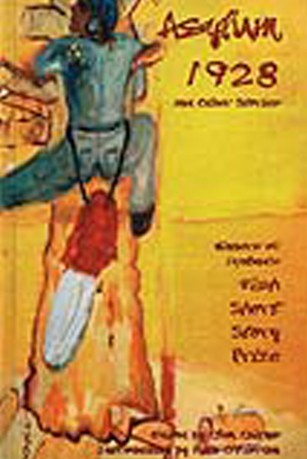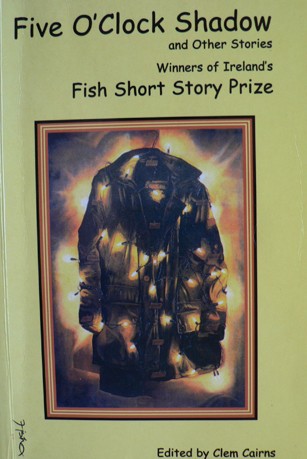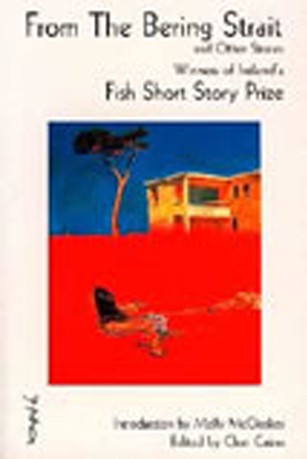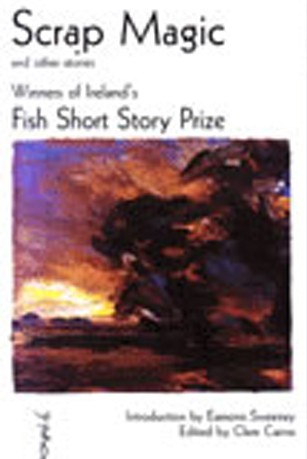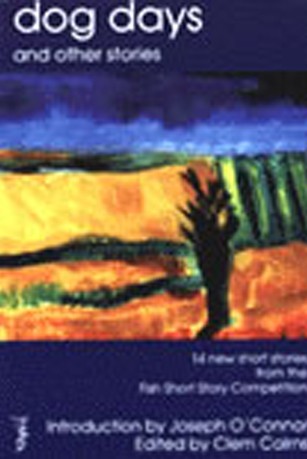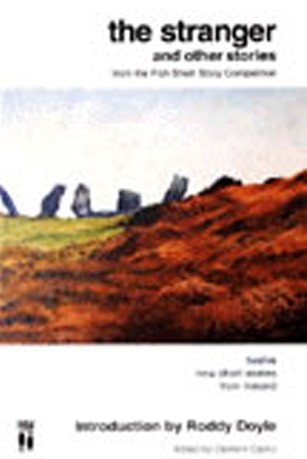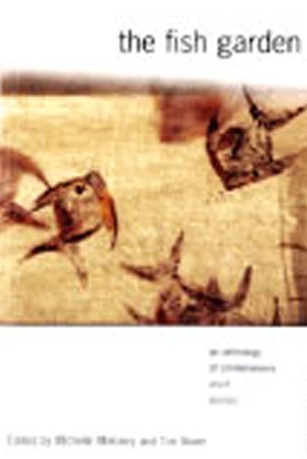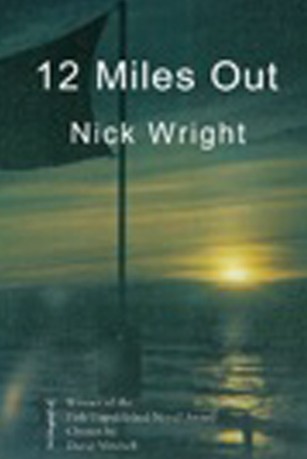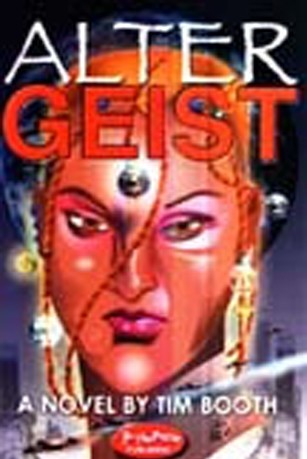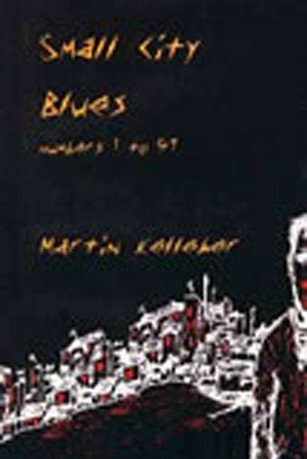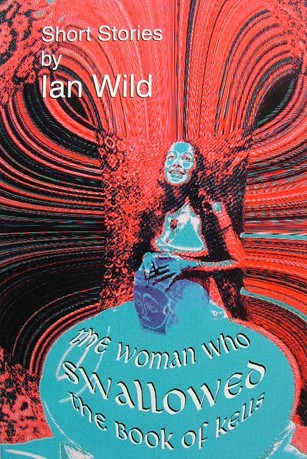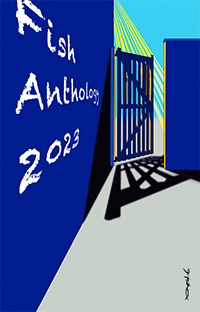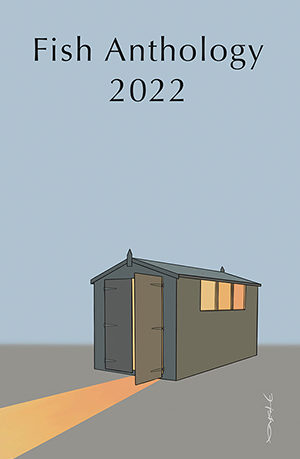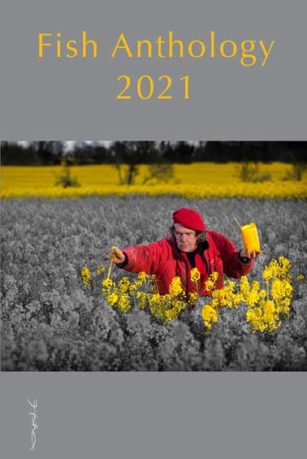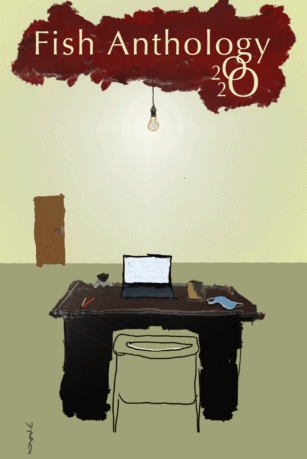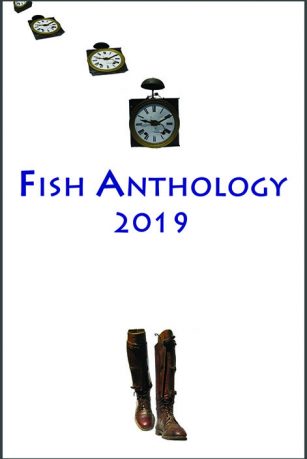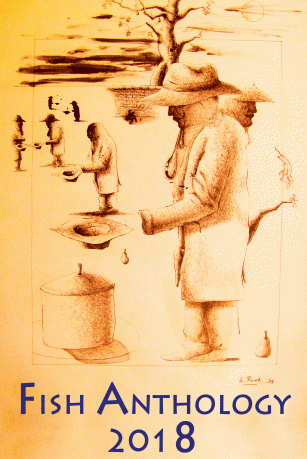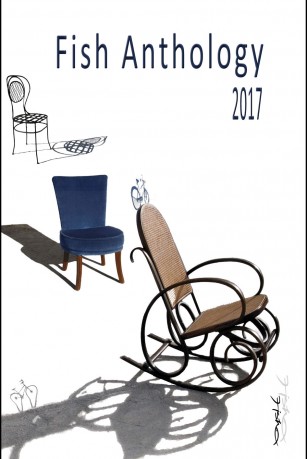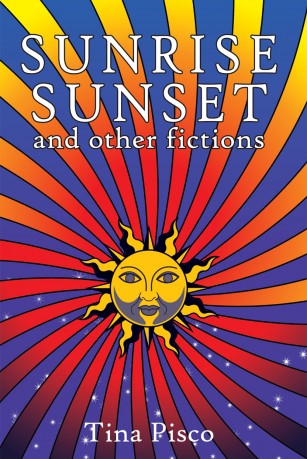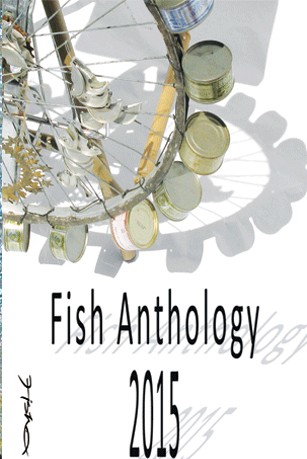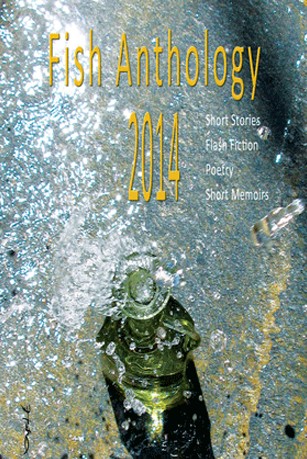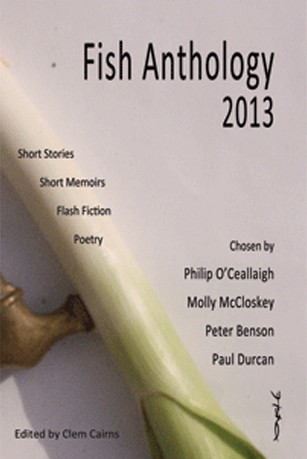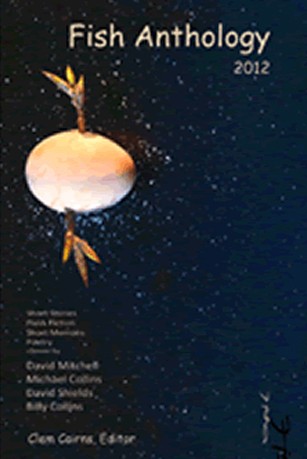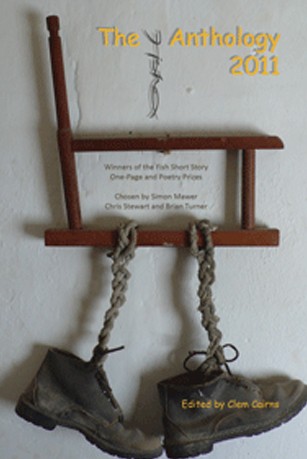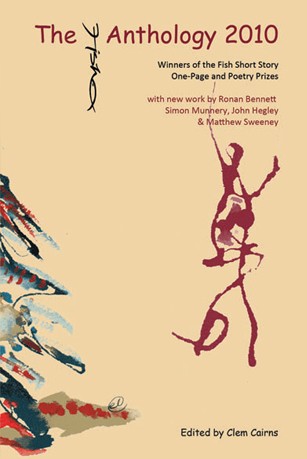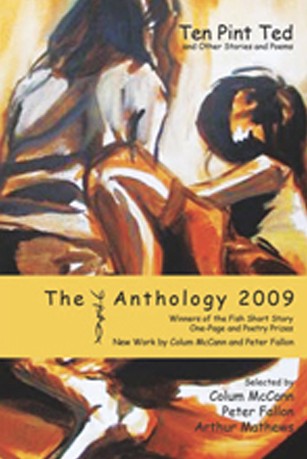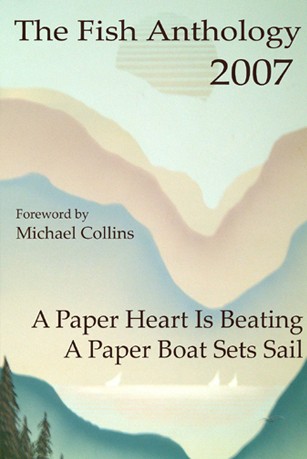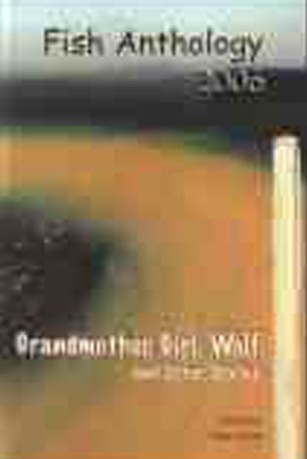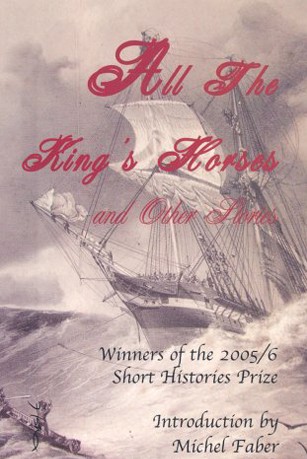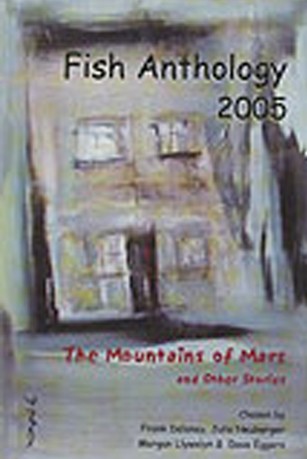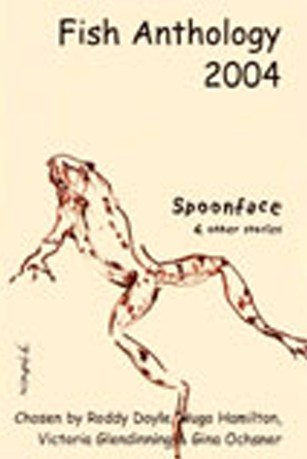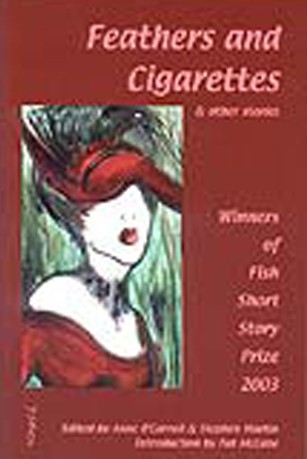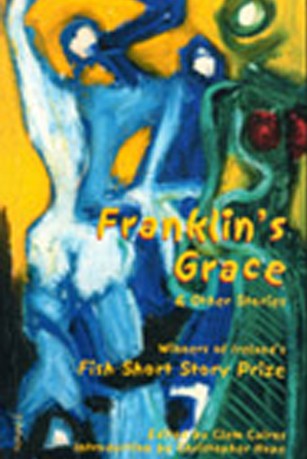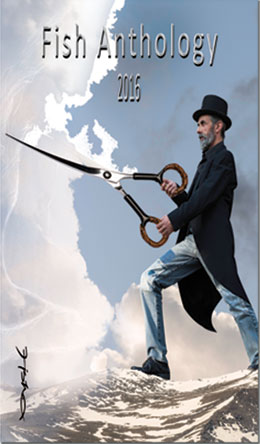
Fish Anthology 2016
ISBN: 978-0-9562721-8-8
Fish Anthology 2016 –
SELECTED BY:
Kevin Barry ~ Short Story
Carlo Gebler ~ Short Memoir
Nuala O’Connor ~ Flash Fiction
Dave Lordan ~ Poetry
Read an excerpt from winning short story –Frogs; The City by Aengus Murray.
Read winning poem – Death of a Refugee by Ciarán O’Rourke.
The short story is an artistic vehicle suited to the modern world, dovetailing neatly with the conventions of a speeded-up life and the demand for the short, sharp hit. It’s all peaks and troughs without the gentle slopes and wide plains of the novel. A good short story delivers everything whilst not telling everything. Good short memoir does the same. Flash goes further, leaving out almost everything, suggesting everything. It’s not that it leaves the clothes off the model so that you can see the naked body, more that it gives you one or two garments and a pose and lets you imagine the body. It can make you work – you’ll often have to read it twice to get what is implied, and let the whole world of unwritten events fall into place. Whereas the short story relies on plot and character, flash has theme and idea to drive it. It has an urgency even if it is quiet, or hidden. The practitioners of the art of brevity and super-brevity whose work is in this book have mastered the skills and distilled and double-distilled their work like the finest whiskey.
In his book On Poetry, Glyn Maxwell writes, “Aesthetic preferences, those things we find beautiful, originate not in what renders life delightful or even durable, but in what makes life possible.” In other words, poetry, along with other art forms, grows from necessity. If it doesn’t, it risks being just nice words on a page. Ciaran O’Rourke’s (winning) poem, Death of a Refugee, is, according to poetry judge Dave Lordan, “Shocking, visceral, rhythmic, righteous, unforgettable – dark music our age needs to hear. Impressive.” The ten poems here range from war to loss, from old age to cutting grass. All carry a sense of some quiet volcano releasing pressure. It’s what we look for.
From the Introduction by Clem Cairns
Contents
Introductory Note / Acknowledgements |
|
SHORT STORIES |
|
|
Frogs; The City |
Aengus Murray |
|
When They Kissed They Really Kissed |
The Man in the Black Pyjamas |
|
Conceptual |
Cait Atherton |
|
Circle City |
Robert Grindy |
|
Clair de Lune |
Susan Bennett |
|
To Woo |
Anthony Dew |
|
Nashville |
Judith Turner-Yamamoto |
|
Me & Mr. Tinkles |
Thomas M. Atkinson |
|
Jokes in Lemon Juice |
Lezanne Clannachan |
|
The Sun and The Moon Were Out |
Annette Trevitt |
|
FLASH FICTION |
|
|
The Young Brown Bear |
Julie Netherton |
|
A Marriage in Winter |
Sarah Baxter |
|
Ever Kiss a Man Near to Dying? |
Lindsay Fisher |
|
White is for Widows |
Ellie Walsh |
|
Climate Change |
Jay Kelly |
|
A Quarter Pound of Tea |
Vivienne Kearns |
|
A Mother’s Love |
Robert Barrett |
|
The Mirrored Man |
Mary Fox |
|
The Giant Girls |
Natalia Theodoridou |
|
Twig |
Michelle Wright |
|
SHORT MEMOIRS |
|
|
The Way I Tell It |
Angela Readman |
|
Dead Hand |
Gwen Sayers |
|
Still Life with Cemetery |
Teresa Hudson |
|
This is the Boat that Dad Built |
Jane Fraser |
|
Moon Over River, 1956 |
John Killeen |
|
Go Tell It On The Mountain |
Eileen P. Keane |
|
Burning Bridge |
Barry McKinley |
|
First Kiss |
Sarah Leigh |
|
Stepfathers |
Sarah Tirri |
|
Setting the Water |
Diane Simmons |
|
POETRY |
|
|
Death of a Refugee |
Ciarán O’Rourke |
|
Can I just speak to you for a second? |
Sarah Byrne |
|
VE Day |
Norm Neill |
|
Remnants |
Deirdre Daly |
|
Camerata |
Theophilus Kwek |
|
Gutter Ball |
Eric Berlin |
|
Letter from St Jude’s Ward, April 1956 |
Sarah Byrne |
|
Flash in the Distance |
Pat Dixon |
|
Mowing the Lawn |
Lisa St. John |
|
See Below for Details |
D.G. Geis |
|
BIOGRAPHIES |
|
Frogs; The City by Aengus Murray
The frog wiggles and wriggles and jiggles in my big fat grasp, trying to slime and squelch its way free, but there’s no point because I’m nearly a man and it’s only a stupid little frog, just like all the others. I’ve never met a frog I couldn’t handle and neither has my pappy nor my granpappy, nor his pappy neither, though I didn’t know him, because he would have been born and then lived and then even died before I even managed to be born, so it would have been impossible for me to know him, except the things I hear about him from pappy and granpappy, who talk about him a lot and so I do kind of know him, but not in the normal way, like, if he walked by me on the street I wouldn’t say Hi or anything, I’d just walk on and so would he, but I guess I’d be pretty freaked out.
I know what he looked like from one really old black and white photo that granpappy has always kept on his bedside table all the time I’ve been alive and probably even for a while before that. In it he’s sitting on a tall wooden chair in the back garden of the house, in front of a vegetable patch, with the mountains behind him and he’s got a hat with a brim to shield his eyes and breeches and a pipe. The brim doesn’t quite do its job though, because he’s squinting as if the sun is still hitting his eyes and I think he’s trying to smile, but it looks more like a grimace really because of the squinty eyes and also because he only has a few teeth. He has a big old wrinkly face and I think the picture was taken not long before he died because he looks pretty dilapidated and there’s a stick beside him leaning against the chair and that must be his stick to help him walk, because there’s no one else in the photo. It’s hard to make out, but the bucket at his feet looks like it might have frogs in it, which would make sense because granpappy always tells me that his pappy was very proud of his trade. From what I’ve heard, he knew how to handle a frog better than my granpappy even and granpappy knows how to handle one better than pappy and pappy knows better than me, but even still, I know how to handle one pretty well and I think I’d be a match for most people, just not pappy or granpappy.
Granpappy says that when things go bad in the cities and there’s all the carnage, people from there will come out to us and beg for help because they’ve forgotten all the old ways and we’ll be the ones in charge then because they’ll need us to show them how to handle frogs and the likes. Not that that’s the most important thing, but it could be a bit important once things get back to normal, because people always find comfort in pets and decoration, he says. Anyway, how are the city dwellers going to survive if it’s not with our help? None of them can build fires or kill and gut a pig or grow vegetables or anything like that, like we can. That’s why he thinks it’s important that each new generation learns how to do these things, because some day we will be useful and he says a man must always help his fellow man, even if they don’t see eye to eye and I think he’s right. So even if all the city dwellers – who I hate – even if they all come out here and it would be funny just to laugh at them and not teach them anything and watch them all squirm and wriggle and die, we have to do our best to help them and not be too unkind, because each man is really only doing his best in the world and it’s a harsh place, the world.
But recently I’ve started feeling this strange feeling in around the top of my stomach whenever I handle a frog and it’s like my insides are telling me that there’s something wrong with what I’m doing. But if it’s wrong then why does pappy do it and why does granpappy do it and why did even his pappy do it before I was even born? Every time I have a stupid little frog in my hands now, I get this feeling and I think I should maybe just take it back to the lake outside the village or the river bank or wherever it was caught, but then how would pappy and granpappy make the money we need to survive? I never used to even think about it, not even a small bit – it was no different to kicking a ball or flying a kite or going into the steep north field to pick mushrooms – it was just something I did and that was that. But now when they wriggle and wiggle and jiggle like that, squelching and sliming to get free, I feel like maybe I should actually set them free, because if they’re wriggling about like that, then they can’t be happy and you can tell they are even more unhappy once you put the glue on their bellies and press them down against the little wooden plinth and hold them there for 45 seconds until they are good and stuck.
Death of a Refugee by Ciarán O’Rourke.
List me down when I am dead,
and may the list include
the bird that fled,
the bomb that flew,
the avenues buckled
and blit with dust –
mourn if you must,
but let no elegist
intrude, to bury
the words you knew
for murder, the laws
you wrote to kill,
the years you watched
me trammelled,
and the broken book
my body filled.
Have history inhere
in the border singing
through my head,
in the blood
that bled
at the tick of your pen,
in the bullet, the brick,
the burning air,
in the char you made
of children,
the cartographers you trained
to map my eyes
with shrapnel, to wrap
my hands in flame.
Poetry is feverish,
memory an art,
so say
that I kept living,
though you ripped
my world apart,
and remember me
as human, in your
hardly human heart.


